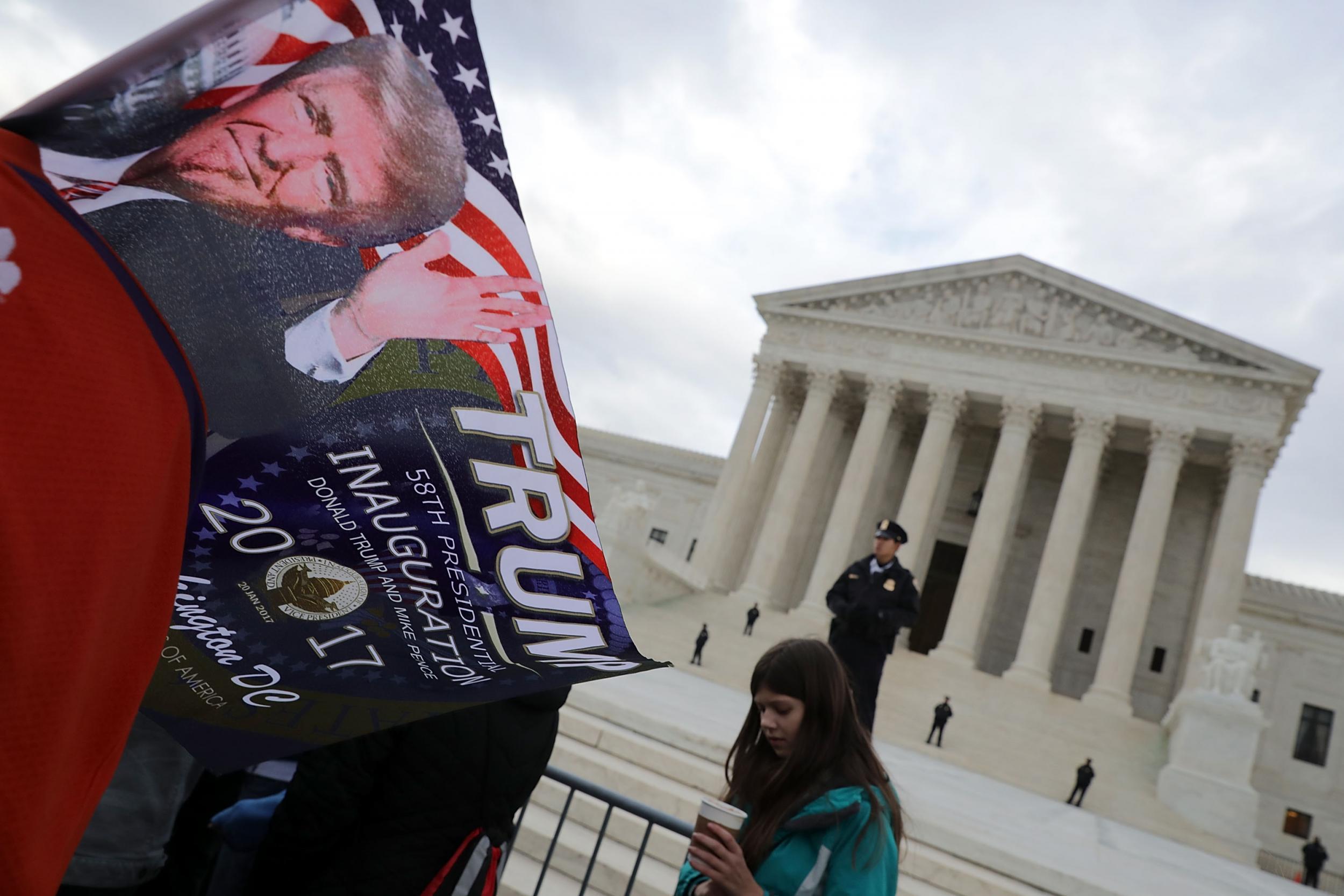US Supreme Court allows Donald Trump to uphold 'Muslim travel ban' restriction on refugees
Justices agree to let administration block lower court ruling permitting 24,000 asylum seekers to enter country in defiance of controversial order

Your support helps us to tell the story
From reproductive rights to climate change to Big Tech, The Independent is on the ground when the story is developing. Whether it's investigating the financials of Elon Musk's pro-Trump PAC or producing our latest documentary, 'The A Word', which shines a light on the American women fighting for reproductive rights, we know how important it is to parse out the facts from the messaging.
At such a critical moment in US history, we need reporters on the ground. Your donation allows us to keep sending journalists to speak to both sides of the story.
The Independent is trusted by Americans across the entire political spectrum. And unlike many other quality news outlets, we choose not to lock Americans out of our reporting and analysis with paywalls. We believe quality journalism should be available to everyone, paid for by those who can afford it.
Your support makes all the difference.The Supreme Court is allowing the Trump administration to maintain its restrictive policy on refugees.
The justices have agreed to an administration request to block a lower court ruling that would have eased the refugee ban and allowed up to 24,000 refugees to enter the country before the end of October.
The order was not the court's last word on the travel policy that President Donald Trump first rolled out in January. The justices are scheduled to hear arguments on 10 October on the legality of the bans on travellers from six mostly Muslim countries and refugees anywhere in the world.
It's unclear, though, what will be left for the court to decide. The 90-day travel ban lapses in late September and the 120-day refugee ban will expire a month later.
White House spokeswoman Sarah Huckabee Sanders said on Tuesday night: “We are pleased that the Supreme Court has allowed key components of the order to remain in effect. We will continue to vigorously defend the order leading up to next month's oral argument in the Supreme Court.”
The administration has yet to say whether it will seek to renew the bans, make them permanent or expand the travel ban to other countries.
Lower courts have ruled that the bans violate the Constitution and federal immigration law. The high court has agreed to review those rulings. Its intervention so far has been to evaluate what parts of the policy can take effect in the meantime.
The justices said in June that the administration could not enforce the bans against people who have a “bona fide” relationship with people or entities in the United States. The justices declined to define the required relationships more precisely.
A panel of the San Francisco-based 9th US Circuit Court of Appeals upheld a district judge's order that would have allowed refugees to enter the United States if a resettlement agency in the US had agreed to take them in.
The administration objected, saying the relationship between refugees and resettlement agencies shouldn't count. The high court's unsigned, one-sentence order agreed with the administration, at least for now.
The appeals court also upheld another part of the judge's ruling that applies to the ban on visitors from Iran, Libya, Somalia, Sudan, Syria and Yemen.
Grandparents and cousins of people already in the US can't be excluded from the country under the travel ban, as the Trump administration had wanted. The administration did not ask the Supreme Court to block that part of the ruling.
AP
Join our commenting forum
Join thought-provoking conversations, follow other Independent readers and see their replies
Comments